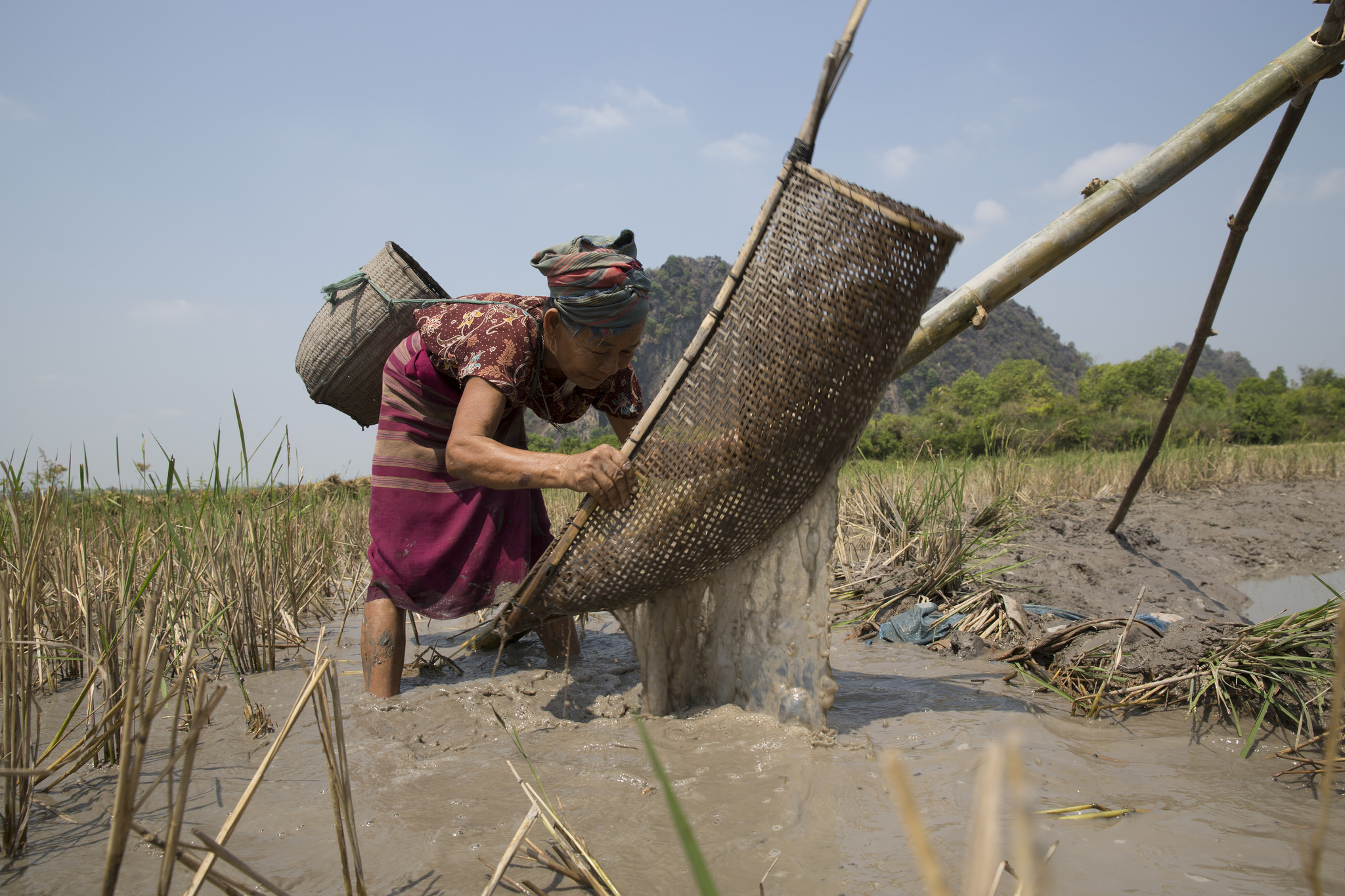
June is an exciting month for us here in Myanmar. All older people over the age of 90 are now eligible to receive 10,000 Burmese kyat (around US$7) per month from a new universal social pension – the first of its kind in the country. For a lower middle income country where social protection has historically been very limited, this is a major achievement.
Since 2014, HelpAge International’s Myanmar office has been working closely with the country’s Department of Social Welfare to advocate for laws and policies targeted at older people (including pensions) and provide assistance in their development and implementation.
Our policy team has been providing rigorous technical support to the Department of Social Welfare and beyond. Here are five things we learned that contributed to our success!
Develop relationships with the government
Before we started engaging with the Government on social protection and ageing, HelpAge already had a relatively well-developed relationship with the Ministry of Social Welfare, Relief and Resettlement since 2004 through working with them on previous development projects.
When the HelpAge social protection policy project, supported by the Livelihoods and Food Security Trust Fund, began, we were able to build on this existing rapport. It can otherwise take a while to develop relationships, and this can slow the time it takes to start working effectively and seeing results from the project.
Being based in the ministry, the team has built a strong and trusting relationship with high-level officials, as well as Government staff.
Use pilots to generate learning and build government ownership
Before launching the national social pension scheme, the team worked closely with the Department of Social Welfare to pilot two small-scale social pension programmes in two geographically distinct areas in Kachin in the north and Ayeyarwady in the south-west.
These pilots showed that delivering cash to older people using the existing government system was operationally feasible. The experience also allowed high-ranked Government officials to understand and own the process. It was a key strategy to produce “homegrown” evidence that the Government could relate to, which was more convincing than highlighting successful cases from overseas and made it easy to get the go-ahead for a nationwide scheme.
Respond to government policy priorities
It is important to work on priorities that matter to the government. For instance, the social pension was already identified as one of the state’s eight flagship programmes in the National Social Protection Strategic Plan in 2014.
On a day-to-day basis, you can look for what the government needs assistance with and respond to changes. By understanding gradual trends, you can respond with project ideas that reflect their needs.
Our team has responded to specific social pension implementation issues. Currently, we support coordination meetings in each state and region of Myanmar to ensure the roles and responsibilities at subnational levels are clear. We are also training ministry staff members on database management in preparation for the digitisation of processes during future pension payments.
Engage with parliamentarians
In order to generate the necessary support for legislative action, we engaged with parliamentarians. A major achievement was the passing of the Law Relating to Older Persons in December 2016.
To support this to become a reality, we strived to build parliamentarians’ awareness of issues older men and women face in Myanmar, which also helped to establish support for the social pension. Parliamentarians can also help with raising awareness of social pension within their communities to get more eligible older people to register for the scheme.
Have a team of international experts and dedicated national staff
Available budget may make this difficult, but it is important to have a dedicated national team led by an experienced expert. In HelpAge’s case, we have an international expert in social protection based in the ministry, who guides the team on how to work with the Government, plan the project, organise events and communicate with ministry staff. This cooperation allows technical expertise and international best practices to be adapted to the local context.
It goes without saying that successful policy engagement requires strong political will and mutual trust. But our experience in Myanmar shows that, even where political will is present, there are significant challenges governments can face. Organisations like us, therefore, have important roles to play in providing technical assistance. Apart from this, patience, respect, and the ability to facilitate and innovate effectively are key to success.
Find out more about our work in Myanmar.
